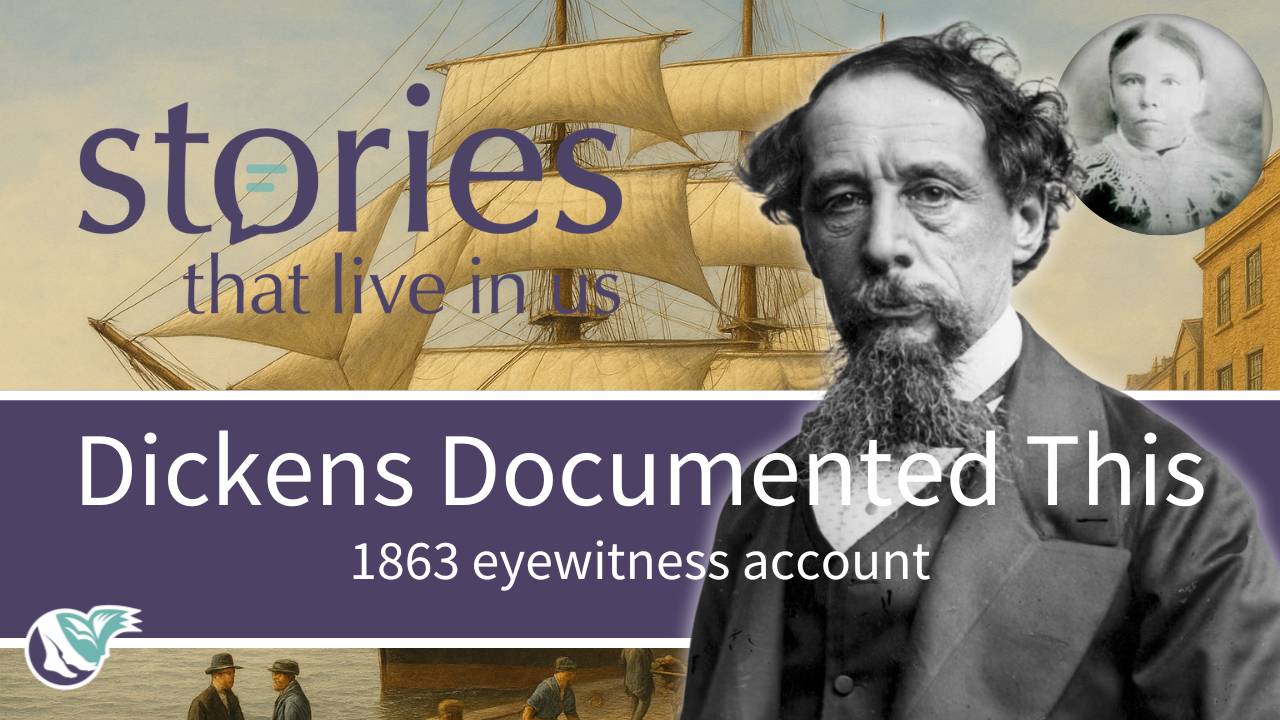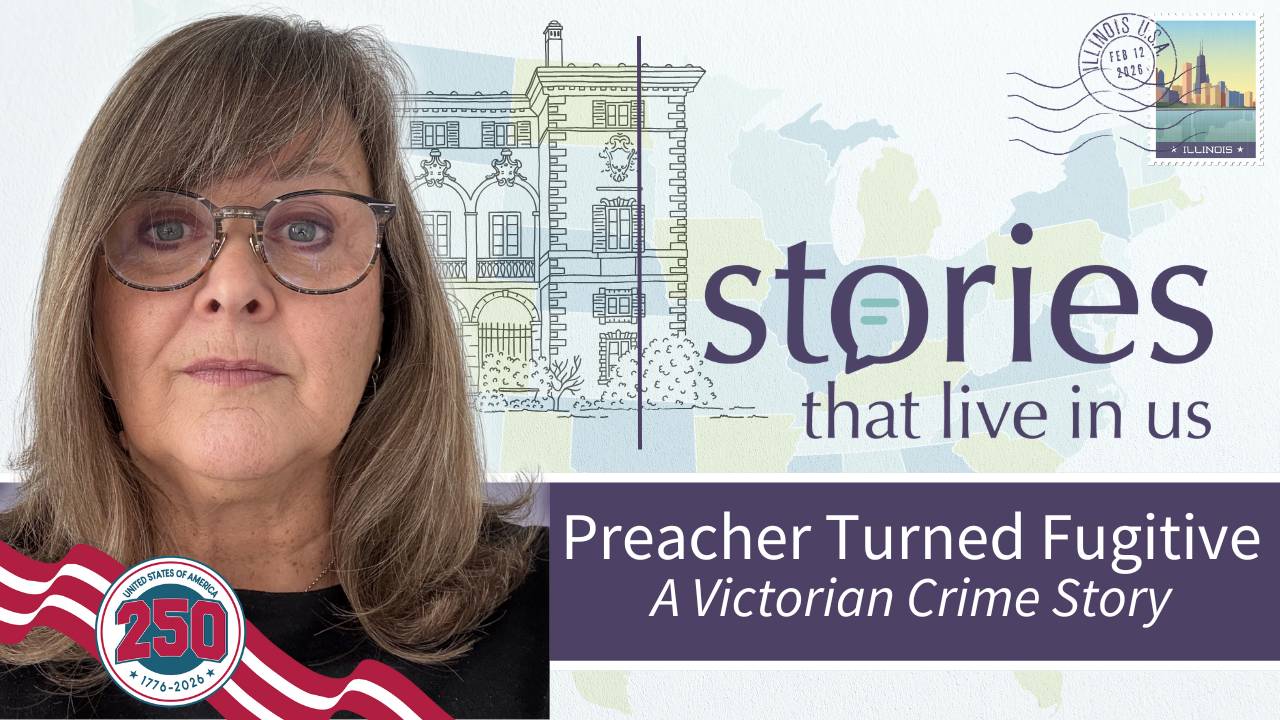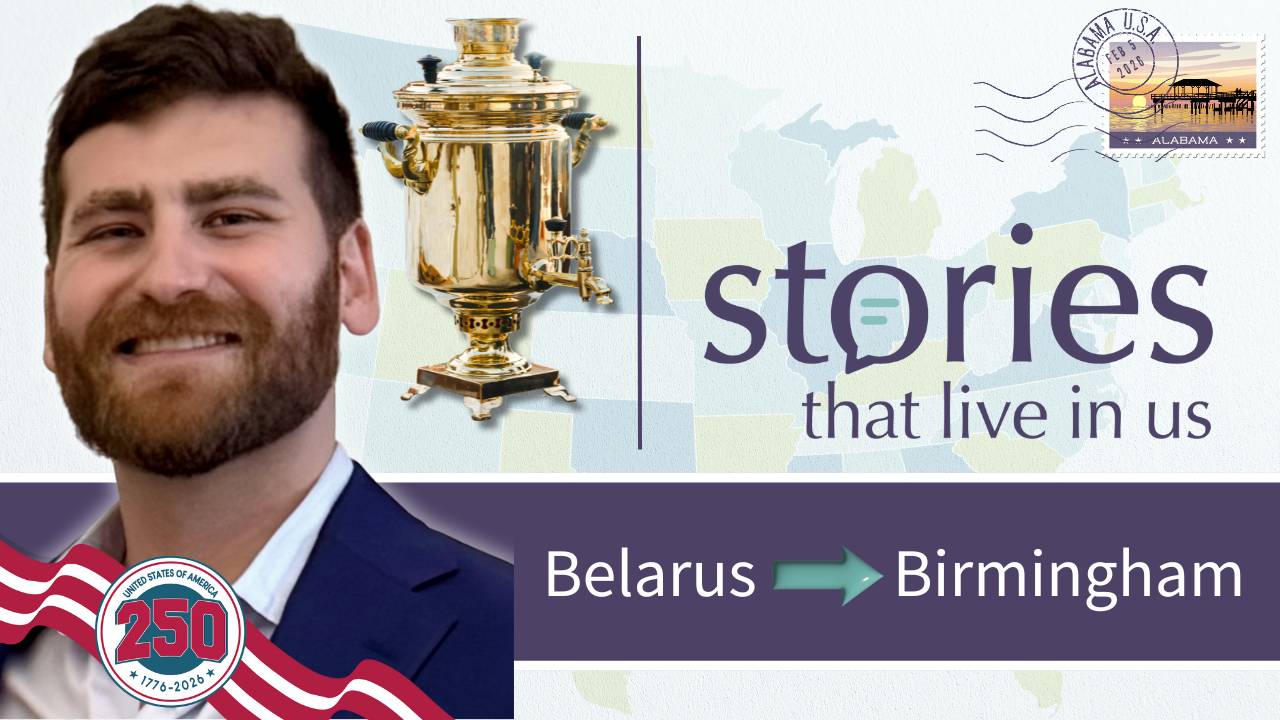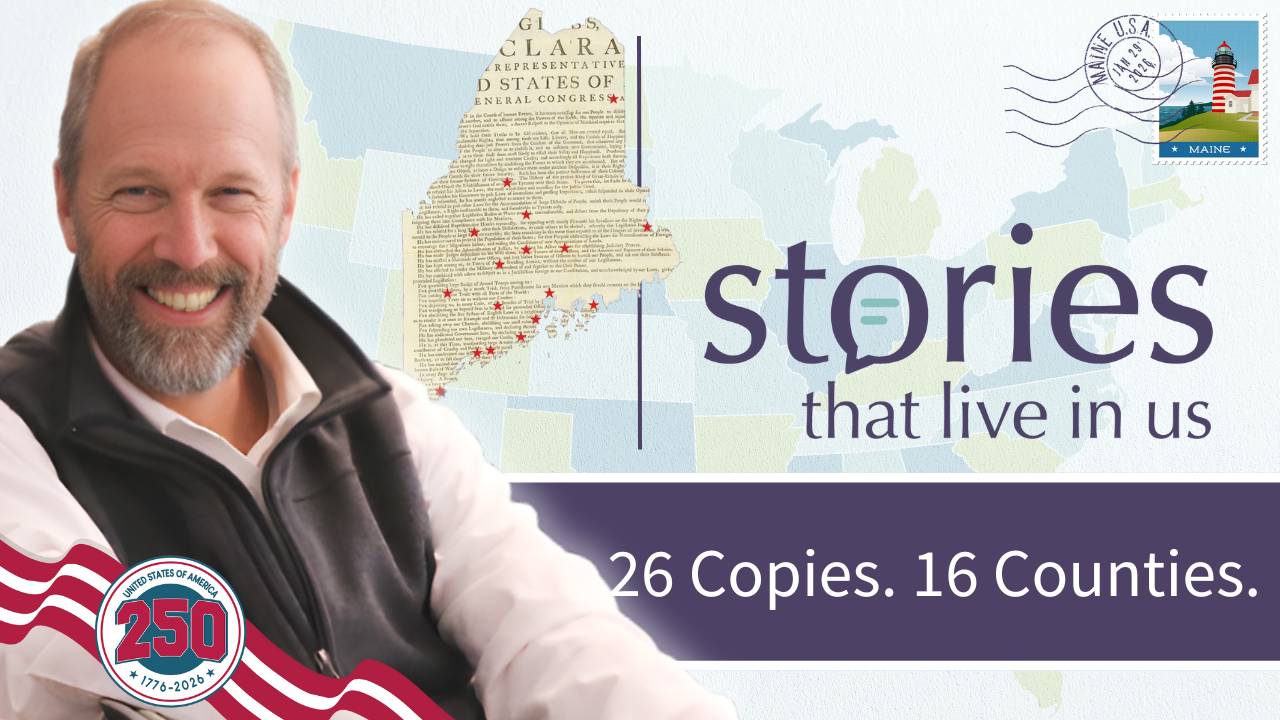An Honest Witness: The Day Charles Dickens Watched My Ancestor Sail to America
Jun 12, 2025
What if I told you that Charles Dickens (yes, that Charles Dickens) spent an entire day watching your ancestor prepare to sail to America, and then wrote about it in vivid detail? What if his words could transport you directly to the crowded London docks in 1863, letting you see exactly what your family member experienced during one of the most pivotal moments of their life?
That's exactly what happened when I discovered my three-times-great-grandmother, Rachel Smuin, sailed aboard the Amazon, the very ship that captured Dickens' attention and challenged everything he thought he knew about Mormon emigrants.
"When I first read this letter, I had to reread it like three or four times because I couldn't believe the amount of detail that was shared about this particular story."
In 1863, nineteen-year-old Rachel and her sister joined 800 other Mormon emigrants aboard the Amazon, departing from London rather than the usual port of Liverpool because this massive ship was too large for the smaller harbor. The unusual sailing caught the attention of Charles Dickens, who owned a newspaper called The Uncommercial Traveler and had previously written scathing articles about Mormons. Expecting to find chaos and disorder, he boarded the ship for what he intended to be an exposé.
Instead, he found something that completely overturned his expectations.
The Whole Story
If you haven't heard how Charles Dickens became an unexpected witness to my ancestor's journey, take a moment to listen:
Prefer audio only? Click here to listen on your favorite podcast app.
🎧 Listen to the full episode to discover:
- How I learned about this incredible letter through a surprising connection with one of my best friends, Jenn Utley
- Charles Dickens' account of the Amazon's loading and departure day
- Why this particular sailing was so unusual it drew the attention of a famous author
- The touching moment when I shared this letter with family members on the steps of the church in Radley, England, where Rachel had been christened
- How to search for contemporary accounts that might document your own ancestors' experiences
- The remarkable transformation in Dickens' perspective from skeptic to admirer
The Power of One Story
What makes this discovery so powerful isn't just that a famous author happened to document my ancestor's journey. It’s how his honest account reveals the character and dignity of ordinary people during an extraordinary moment. Dickens came expecting to find disorder and left praising their "remarkable influence" that produced "remarkable results."
"I went on board their ship to bear testimony against them if they deserved it, as I fully believed they would. To my great astonishment, they did not deserve it... I went over the Amazon's side, feeling it impossible to deny that so far some remarkable influence had produced a remarkable result."
His detailed observations let me see Rachel not as a name on a family tree, but as part of a community of 800 people who organized themselves, wrote letters to loved ones even amid chaos, and maintained dignity during one of life's most challenging transitions. Through Dickens' eyes, I can picture the "neat, pretty girl" writing letters for hours, the families creating cozy circles on deck, and the children playing fearlessly among the cargo.
This contemporary account does what genealogical records alone cannot do. It brings the human experience to life. While passenger lists tell us Rachel sailed, Dickens' letter lets us feel the excitement, smell the salt air, and understand the remarkable community she was part of.
Your Story
Think about the pivotal moments in your family's history - immigrations, military service, natural disasters, community events. While your ancestors might not have caught the attention of Charles Dickens, their experiences were likely documented by someone. Newspapers covered local events, ship captains wrote reports, government officials documented proceedings, and fellow travelers kept journals.
"Don't just think about what might exist for your family that your family might be mentioned in, but think about what else might exist out there that would have been written about the same time, about the same or similar experiences that your ancestors might have gone through."
These contemporary accounts exist, waiting to transform your understanding of your family's story from dates and places into lived experiences.
Story Seeds 🌱
Plant these conversation starters and watch your family stories grow.
- For Parents/Grandparents: "What's the biggest leap of faith our family ever took? Tell me about a time when we had to trust that everything would work out, even when we couldn't see the outcome."
- For Aunts/Uncles: "When have you witnessed someone in our family show remarkable courage or grace under pressure? What impressed you most about how they handled a difficult situation?"
- For Siblings/Cousins: "What family stories have you heard about times when our ancestors had to adapt quickly to completely new circumstances? How do you think those experiences shaped who we became as a family?"
- For Extended Family: "Have you ever come across old newspaper clippings, letters, or documents that mention our family or describe events they lived through? What surprised you most about what you found?"
Story Sparks 🔑
Unlock your family's hidden stories with these research techniques.
- Explore Ship Passenger Lists Beyond Names: When you find your ancestors on passenger manifests, research that specific ship's history. Many famous vessels have documented voyages, passenger accounts, or newspaper coverage that can provide context for your ancestor's journey.
- Create Timeline Context: Build a timeline of major historical events happening during your ancestors' lifetime, then search for contemporary accounts of how those events affected their specific communities or regions.
- Search Historical Newspapers: On Newspapers.com, search for your ancestors' locations during significant events in their lives. Filter by date range and location, then search for their names or the communities they lived in.
The urgency of preserving these connections makes them even more precious. As I stood on the steps of that ancient church in Radley, England, reading Dickens' words to my family members, I realized how these discoveries don't just illuminate the past, they create new bonds in the present. My father's cousins, who had lived their entire lives knowing their family came from this little English village, suddenly had a vivid picture of what that journey to America actually looked like.
"It was interesting to watch their faces as they kind of had to pay a little bit of attention to Dickens' quirky use of 1860s language, but also as they understood the change that occurred in him as he watched this ship that entire day."
Contemporary accounts like Dickens' letter remind us that our ancestors weren't just names and dates, they were real people who lived through remarkable moments with dignity, courage, and hope. When we find these witnesses to their stories, we don't just learn about the past; we discover new ways to honor their legacy and share their strength with future generations.
Ready to discover more hidden witnesses to your family's story? Subscribe to Stories That Live In Us wherever you get your podcasts. And if this episode inspired you to search for contemporary accounts of your own family's pivotal moments, please leave us a rating and review—it helps other family story seekers find these incredible discoveries waiting in their own research.
© 2025 Crista Cowan. All rights reserved.







